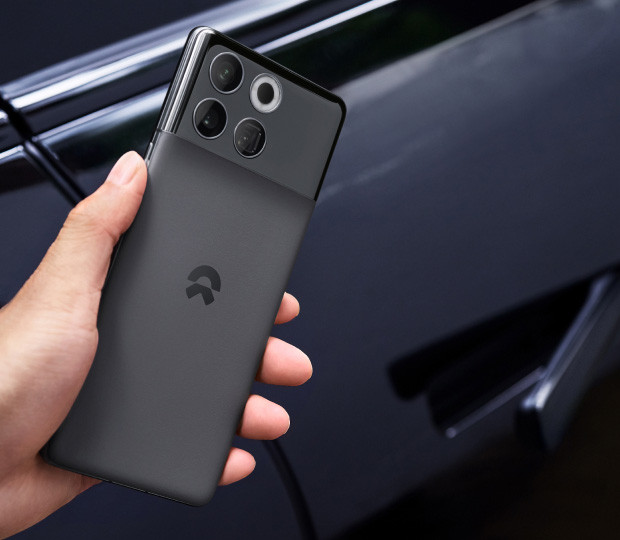In a bold move that underscores the convergence of the automotive and tech sectors, Chinese electric vehicle (EV) giant, Nio, has unveiled its maiden Android smartphone. This launch marks the company's strategic pivot into the mobile tech space, aiming to offer a seamless integration between its electric cars and the smartphone ecosystem.
The Nio smartphone, priced between $900 to $1,000, is positioned as a competitively priced Android device, undercutting similar offerings from tech behemoth Huawei by approximately $150. In an exclusive conversation with CNBC, Nio's CEO, William Li, expressed confidence that a significant portion of Nio's user base would gravitate towards this new offering. He highlighted that among the company's profitable user segment, a roughly even split exists between iPhone and flagship Android phone users, including those from Huawei. Li believes that when these users consider switching phones, the Nio smartphone, with its enhanced car connectivity features, would be a compelling choice.
One of the standout features of the Nio smartphone is a dedicated button that doubles as a car key. This innovation underscores the device's primary value proposition: a seamless transition between the smartphone and the car, especially during activities like online meetings. The phone's design and functionality cater to the modern user who values integrated tech experiences, bridging the gap between their digital lives and their vehicles.
Nio's entry into the smartphone market is emblematic of a broader trend in the EV sector. Electric car companies, especially in China, have been emphasizing in-car entertainment and mobile connectivity as unique selling points. For instance, Swedish EV manufacturer, Polestar, has announced plans to introduce a phone later this year. Even tech giants like Apple and Xiaomi have been rumored to be exploring the automotive space.
Huawei, another major player in the tech arena, has already made strides in this direction. The company launched the Aito brand, which offers electric cars in China integrated with Huawei's operating system. This integration facilitates a sync between personal device settings, such as music preferences, and the car.
Nio's smartphone is not just for Nio car owners. The device is available to all consumers in China. Li pointed out that the Nio phone app boasts 600,000 active users daily, a figure that surpasses the number of Nio car users by 1.5 times.
While Nio's smartphone launch is a significant milestone, the company has no immediate plans to introduce the device in Europe. Li mentioned that Nio's current focus in Europe is on developing localized car services, which are crucial for automotive products.
In the backdrop of rapid penetration of new energy vehicles in China, the EV market faces challenges from an economic slowdown and intense competition. However, Li remains optimistic about Nio's prospects, citing the company's significant investments in research and development, battery charging infrastructure, and the development of a mass-market brand.
As the lines between the automotive and tech sectors continue to blur, Nio's smartphone launch sets the stage for a future where our cars and personal devices are more interconnected than ever before.




